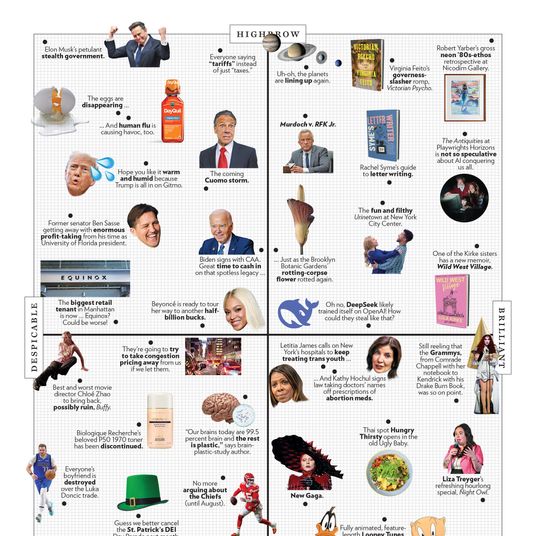Late yesterday Twitter announced, finally, that they will be incorporating ads into their megapopular social-media platform. It looks like the ads will be unobtrusive at first, appearing only as “Promoted Tweets” when you search on Twitter.com for a word that is relevant to a sponsor. Ads will then be measured with what Twitter calls “resonance,” a combination of nine factors including “the number of people who saw the post, the number of people who replied to it or passed it on to their followers, and the number of people who clicked on links,” according to the Times. If the ad does not resonate well, it will disappear — meaning that the company will not have to pay for it, and ensuring that users will not see ads that people generally do not find useful (at least not for long). So what do people think of this long-awaited development?
• It’s a good idea unless it becomes too obtrusive: “Over time, ads could start to appear in the stream of posts people see when they log onto their accounts. This seems like it could get annoying fast, and perhaps turn people off to tweeting if they’re bombarded with ads. Even Twitter’s CEO has said he is concerned with irritating users.” [WalletPop]
• The success will depend on the actual quality of the tweeted ads: “Now that the ad platform has been revealed and Twitter is focused on making money, the multi-billion dollar question is this: will users click Twitter ads? The answer to this question will decide not only the fate of Twitter as a company, but change the direction of all social media … To succeed, Twitter ads have to maintain a level of sincerity that has been one of the cornerstones of social media communication. They also have to be compelling and conversational, rather than overly-promotional. This is something Digg has been able to manage through Digg Ads, and it is something that Twitter must replicate if its model is to prevail.” [Mashable]
• Twitter is also going to have to figure out how to move this beyond searches: “That’s in part because Twitter’s search results are pretty lousy — if you don’t believe me, go ahead and try it yourself. And it’s in part because Twitter isn’t a search engine — it’s a media company that will make money by rounding up eyeballs and showing them marketing messages.” (Plus, the majority of Twitter users don’t access tweets through Twitter.com, but rather through third-party software.) [MediaMemo/AllThingsD]
• This may be a bigger fundamental change than people realize: “Regardless of where Twitter users consumer their Twitter feeds, the reality is this: Twitter’s new ad platform will mark the first time, ever, that users of the service will see a tweet from someone they have not explicitly decided to follow. And that marks an important departure for the young service. One that I think is both defensible, and, if done well, could be seminal to both Twitter and to its partners — both new (marketers) and old (developers).” [BattelleMedia]
• But still, people should get used to it pretty quickly: The implementation won’t be especially annoying, especially the first part. As long as the promoted tweet appears at the top of the search stream, people will immediately get used to it … The best analogy for these ads is probably radio ads: You’re listening to the chatter of your friends and pundits you follow. Then you get a message from Starbucks. Then more chatter of friends and pundits. There’s not much screen real estate to play with, so the number of ads will have to be kept at a minimum or your whole Twitter stream will feel like spam. The ads will be hard to ignore, however — you’ll end up reading most of them. And because they are scarce, they’ll probably get expensive in a hurry. [Business Insider]





























